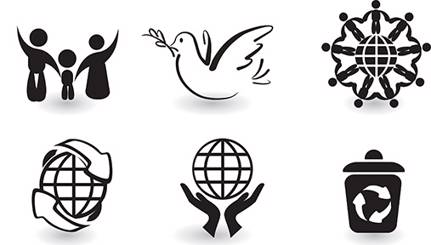
In contemporary political mythology Norden is both a region of peace – a quintessential Deutschian ‘no-war’ security community of social cohesion and societal resilience – and a region for peace – as active proponents of multilateral peace support, humanitarian and development aid and a rules-based international order. Although questions can be raised about this image it is one that endures, with regional leaders often depicting the Nordic countries as being ‘world leaders in peace’. Indeed, peace has often been portrayed as a Nordic export and competitive edge, with this no less evident than in how the region is often described as possessing unique expertise in conflict resolution and where Nordic peace has been cultivated as a global brand – most evident in the annual awarding of the Nobel Peace Prize by the Norwegian Nobel Committee.
Given the prevalence of such images it is surprising that academic analyses of the phenomenon have been relatively limited. Those that do exist have generally sought to account for the emergence and endurance of Nordic peace either by arguing that it was a product of the Cold War balance of power and/or that it has been fundamentally reliant on the region’s (proclaimed) high levels of cultural commonality and convergence. Both explanations can be challenged. However, broader questions related to the historical development of Nordic peace, its mobilization in foreign policy and its infusion into the identity politics of the region have received less coverage. Meanwhile, discussion of contemporary challenges and potential opportunities for Nordic peace is limited. With the ‘post-Cold War era’ now increasingly depicted as over, and in a context of new regional, European and global challenges, the time is ripe for revisiting theoretical and empirical debates about Nordic peace, and in particular considering how ‘Nordic peace’ is being re-inscribed for a new age.
Papers are therefore invited for a two-day conference on the theme of ‘Nordic Peace Revisited’. The conference will involve academics and practitioners, but where academic papers will be collated for publication. We are interested in papers that explore the concept and idea of Nordic peace from diverse and interdisciplinary perspectives. Indicative themes/questions for exploration include:
History, theory, identity, foreign policy, and nordic peace in the twenty-first century.
Call for papers
Access the full call for papers (PDF)
Submissions
Submissions should be sent to Tori Loven Kirkebø at: t.l.kirkebo@jus.uio.no by Nov. 30, 2018





